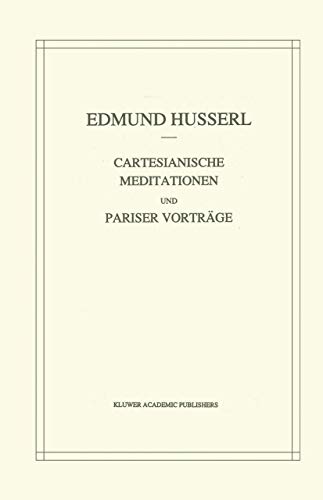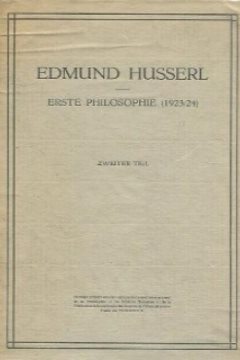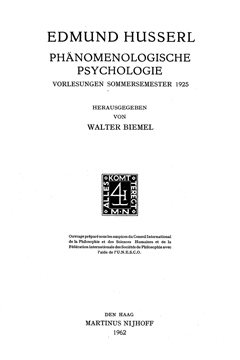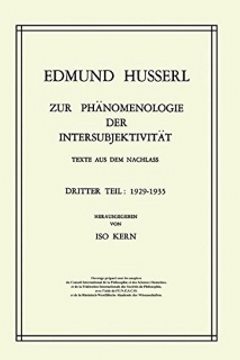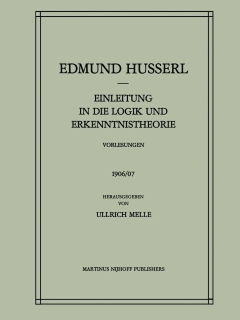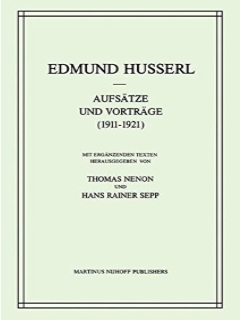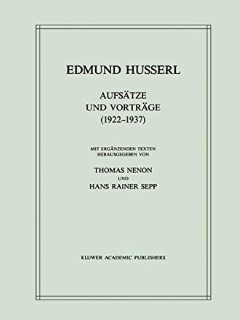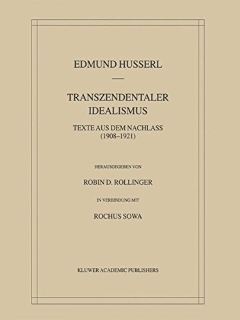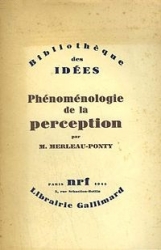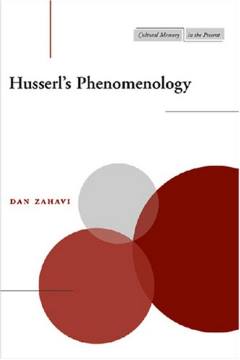Repository | Journal | Volume | Articles

(2008) Synthese 160 (3).
The analyses of the mind–world relation offered by transcendental idealists such as Husserl have often been dismissed with the argument that they remain committed to an outdated form of internalism. The first move in this paper will be to argue that there is a tight link between Husserl’s transcendental idealism and what has been called phenomenological externalism, and that Husserl’s endorsement of the former commits him to a version of the latter. Secondly, it will be shown that key elements in Husserl’s transcendental idealism, including his rejection of representationalism and metaphysical realism, is shared with a number of prominent contemporary defenders of an externalist view on the mind. Ultimately, however, it will be suggested that the very alternative between internalism and externalism—an alternative based on the division between inner and outer—might be inapplicable when it comes to phenomenological conceptions of the mind–world relation.
Publication details
DOI: 10.1007/s11229-006-9084-2
Full citation:
Zahavi, D. (2008). Internalism, externalism, and transcendental idealism. Synthese 160 (3), pp. 355-374.
References
 Die Grundprobleme der Phänomenologie: Marburger Vorlesung Sommersemester 1927
Die Grundprobleme der Phänomenologie: Marburger Vorlesung Sommersemester 19271989
Frankfurt am Main, Klostermann
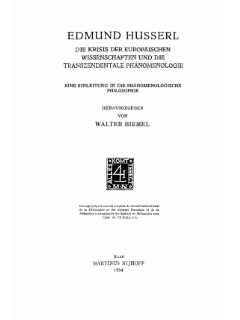 Die Krisis der europäischen Wissenschaften und die transzendentale Phänomenologie
Die Krisis der europäischen Wissenschaften und die transzendentale Phänomenologie1954
Den Haag, Nijhoff
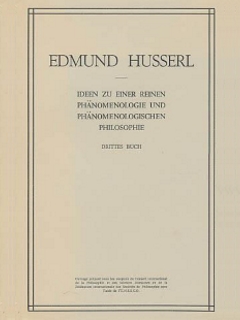 Ideen zu einer reinen Phänomenologie und phänomenologischen Philosophie III: Die Phänomenologie und die Fundamente der Wissenschaft
Ideen zu einer reinen Phänomenologie und phänomenologischen Philosophie III: Die Phänomenologie und die Fundamente der Wissenschaft1971
Den Haag, Nijhoff
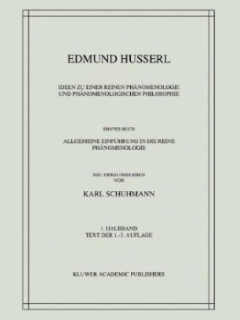 Ideen zu einer reinen Phänomenologie und phänomenologischen Philosophie I: Allgemeine Einführung in die reine Phänomenologie
Ideen zu einer reinen Phänomenologie und phänomenologischen Philosophie I: Allgemeine Einführung in die reine Phänomenologie1976
Den Haag, Nijhoff
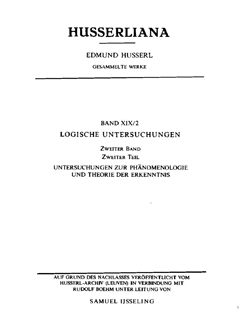 Logische Untersuchungen. Zweiter Band - II. Teil: Untersuchungen zur Phänomenologie und Theorie der Erkenntnis
Logische Untersuchungen. Zweiter Band - II. Teil: Untersuchungen zur Phänomenologie und Theorie der Erkenntnis1984
Den Haag, Nijhoff
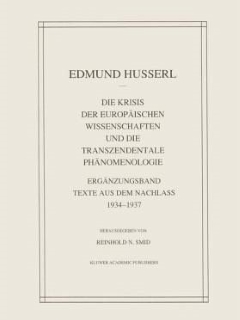 Die Krisis der Europäischen Wissenschaften und die tranzendentale Phänomenologie. Ergänzungsband: Texte aus dem Nachlass 1934-1937
Die Krisis der Europäischen Wissenschaften und die tranzendentale Phänomenologie. Ergänzungsband: Texte aus dem Nachlass 1934-19371993
Dordrecht, Kluwer
 Externalism: Putting mind and world back together again
Externalism: Putting mind and world back together again2003
Montreal-Kingston, McGill-Queen's University Press
 Husserl und die transzendentale Intersubjektivität: Eine Antwort auf die sprachpragmatische Kritik
Husserl und die transzendentale Intersubjektivität: Eine Antwort auf die sprachpragmatische Kritik1996
Dordrecht, Kluwer
This document is unfortunately not available for download at the moment.



